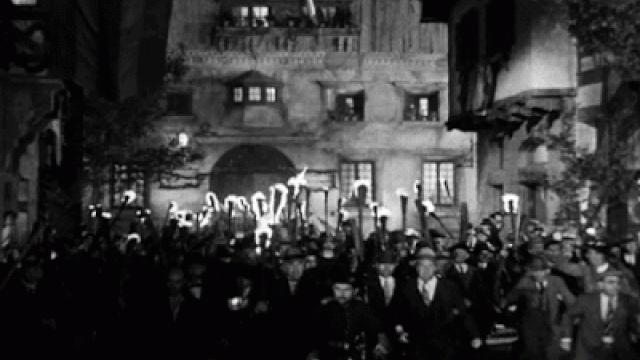Social Media Vigilantism Is a Real and Pervasive Problem

There are all sorts of mobs on the internet.
There are political mobs who defend their favorite ideology/party/candidate while attacking opponents.
There are sports mobs who defend their favorite team. I’ve been on the receiving end of no small amount of vitriol from fans of the NDSU Bison athletic teams, which has a few times tempted me to contact law enforcement.
There are mobs which form around bands or actors or other celebrities, but perhaps the scariest sort of mob are those which form around a supposed pursuit justice.
That’s something the Fargo Forum writes about in an editorial today. Sheridan Tihista was a middle school teacher in West Fargo who wrote some ill advised things about her students on social media. Those postings were made public – the anonymous group of parents who noticed them alerted the media as well as school officials – and a social media justice mob formed.
Tihista, who undeniably did something wrong, has now resigned.
[mks_pullquote align=”right” width=”300″ size=”24″ bg_color=”#ffffff” txt_color=”#000000″]A bad experience at the grocery store, or a sharp disagreement with a teacher, isn’t just an inconvenience these days. Now it’s also an opportunity to inspire a lot of likes and comments and retweets.[/mks_pullquote]
“[W]hat could have been a teachable moment for an inexperienced teacher turned into a witch hunt, as Tihista was vilified and portrayed as callous,” the Forum writes. “Placed on leave during an investigation, Tihista concluded that she had had enough and on Wednesday, April 12, submitted her resignation. School officials allowed themselves to be manipulated by an anonymous group of parents, and the effect was ruining a young teacher’s career.”
I don’t think there was anything wrong with parents raising the issue with school officials. I question the decision to alert the media. But the part of the equation the Forum left out was the social media reaction.
It was immediate and vicious and left little room for Tihista to admit her mistake and rehabilitate her career.
That’s a shame, and yet turning to social media for mob justice is a common impulse in America today.
Every day, through our various social media channels, we’re fed a steady diet of outrage amid the news and photos and posts from loved ones. Someone was rude to a customer in Starbucks. Someone at McDonald’s messed up someone’s order. We rush to social media with this news because, let’s face it, these online platforms have made us all stars in our little reality shows.
A bad experience at the grocery store, or a sharp disagreement with a teacher, isn’t just an inconvenience these days. Now it’s also an opportunity to inspire a lot of likes and comments and retweets. And a lot of the discussion is knee-jerk reaction.
Fire somebody. Boycott the business.
Sometimes things boil over. Real people get hurt. Actual injustices are done. Or sometimes, like this incident in Fargo from a couple of years ago, people are so busy getting worked up on social media about some supposed threat that they forget to actually, you know, contact the authorities.
Don’t get me wrong, there is a positive side to this as well. How much would any of us have actually learned about the way David Dao was treated on that United Airlines Flight were it not for video posted online?
Believe me, as someone who started a blog about politics 14 years ago and turned it into a career, I understand the importance of these mediums.
I worry about how we’re using them.
When we have a bad experience in the store we should talk to a supervisor, or a manager, and try to resolve the problem. If your neighbor is doing something to annoy you try engaging them about it. Have a problem with your kids teacher? Talk to the teacher. Or the principal. Or the school board.
We aren’t doing these things. We’re not talking to each other. We’re talking about one another to an internet audience which will give us sympathy and ego-stoking likes and shares.
If there’s anything at the root of faction and social discord in America today, it’s that.
On a related note, I talked about this on my radio show yesterday. Podcast here, if you’re interested.




